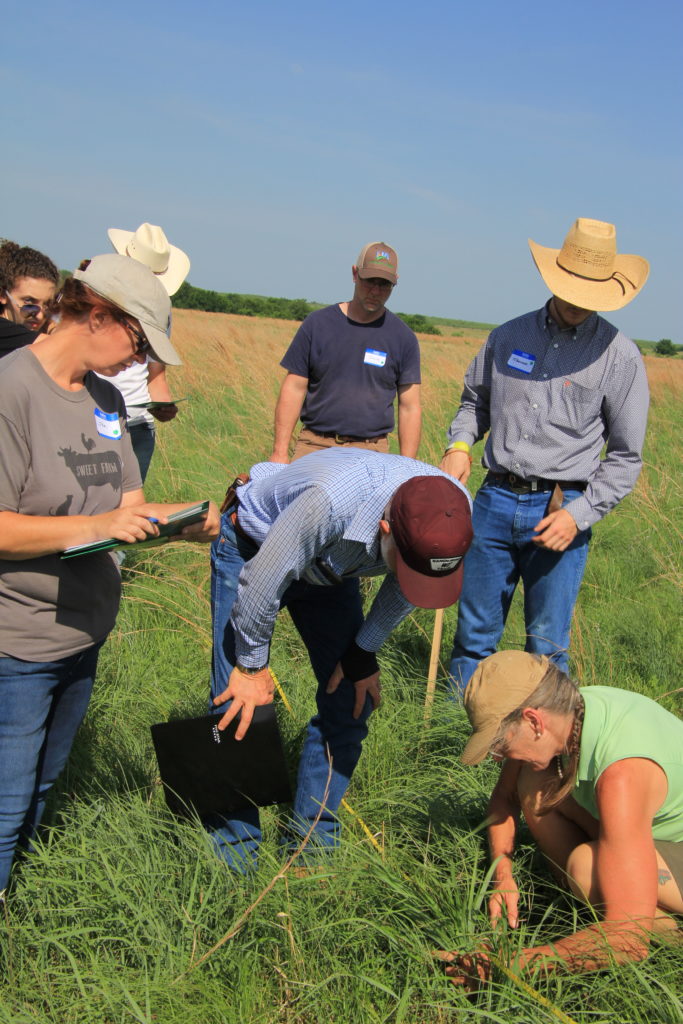Birdwell-Clark Ranch Whole System Health Workshop Recap
- Jul 19, 2022
- 4 min read
Guest Blog by Dana Bonham
On May 11-12, 2022 Emry Birdwell and Deborah Clark hosted HMI’s two-day workshop on their ranch near Henrietta, Texas: Ranching for Whole System Health.
What an experience! Looking across the huge herd of 4,000 steers as they calmly move between paddocks is impressive. The “magic” happens when you observe what is happening with the plants, growth, and soil as a result of the intensive grazing management.

Even in the dry conditions while we were at the ranch, the grass and forbs were growing very fast. So fast that Emry explained that he needed to move the herd faster to prevent the grass’s nutritional value from declining as it becomes reproductive.
The implications are clear, by managing with nature, by mimicking how ungulates and predators roamed the prairie hundreds of years ago, Emry and Deborah have increased their land’s ability to grow reliable volumes of forage even in dry conditions.
By planning the grazing densities and recovery periods, they have successfully mimicked natural herd movements to increase productivity and drought resilience.

But this productivity “magic” extends beyond just cattle gaining weight and grass production. Between the grasses there is a profusion of forbs and a huge diversity of grass species. This kind of management fosters the conditions that promote the growth of diverse plants.
This diversity feeds the entire ecosystem, both above and below ground. With the profusion of forbs there is diverse habitat for pollinator insects and animals. The plant diversity sustains a complex and diverse population of soil microbes and organisms. Long recovery periods, timed to optimize forage production and nutritional value translate into abundant food for the entire ecosystem, from pollinators, to birds and animals.
In addition to the learning from Emry and Deborah, Wayne Knight, HMI Certified Educator and Executive Director, introduced participants to understanding ruminant digestion and how to observe and balance animal performance with planned versus actual grazing moves.
Other areas discussed were measurement and planning for available forage relative to key calendar dates to reduce risk and stress when rainfall and growth produce less than anticipated forage.

Since Holistic Management is concerned with managing for sustainability well into the future, monitoring to ensure that management is leading to the regenerative outcomes desired, workshop participants were introduced to simplified monitoring techniques to verify that positive trends are, in fact, being achieved.
Birdwell Clark Ranch hosted a barbeque on the evening of the workshop where much fellowship and learning was shared.
Amanda Gobeli from Texas Wildlife Association covered management and monitoring to promote quail habitat on ranch lands. She discussed concepts like analyzing the environment to determine what the weakest link in the life cycle of quail might be, and then addressing that weak spot, to enhance the habitat and survivability of quail fledging, food availability, and shelter.
She utilized a ball to demonstrate the size of a quail and how they have to navigate through their environment.
Thomas Schroeder from Audubon Conservation Ranching Bird Friendly Beef program introduced the audience to his organization’s branding and awareness program. Core to his message is that consumers are more aware of environmental issues, and that developing a market awareness and being involved in a product branding initiative is an important niche market creation process. Thomas explained that Audubon really helps ranchers by sponsoring the monitoring and verification process.

NRCS’s Corban Hemphill utilized a rain simulator on display to demonstrate how soil management influences water infiltration. Various samples of local Henrietta soil management practices were used in the rainfall simulator to demonstrate how tillage, no-till, heavy continuous grazing and planned grazing influence water infiltration into similar soil types. The results were telling of how poorly water infiltrates soils and the impacts of erosion where there is significant bare ground.
Sixty-three people attended this workshop which included two rangeland outings. There were significant numbers of students, young farm managers and NRCS agents at the event. Thirty-one of the attendees were under the age of 55. This age diversity is largely thanks to the generous scholarships made available from the event sponsors.

Overall satisfaction with the event was very positive with 97.9% expressing that the day was either good or excellent. 100% said they would recommend the day to others. Overall the largest gains in knowledge, as reported on the evaluations, were in the areas of animal performance, ecosystem health, and how to assess quantity of forage in a pasture.
Participants were inspired by Emry and Deborah and the work they put into the Birdwell-Clark Ranch and shared the following feedback:
“The workshop exceeded my expectations. Very informative, increased my knowledge in grazing.”
“Well put together with a lot of valuable information.”
“The field experience was very meaningful.”
“This was very informative and having access to the land owners and all people working the ranch takes discussions to the applicable and practical very quickly. Well done.”
HMI gives special thanks to our incredible hosts Deborah Clark and Emry Birdwell of Birdwell-Clark Ranch and to our sponsors. We would also like to thank our collaborators Amanda Gobeli from Texas Wildlife Association, Corban Hemphill from NRCS, and Thomas Schroeder of Audubon Conservation Ranching.
